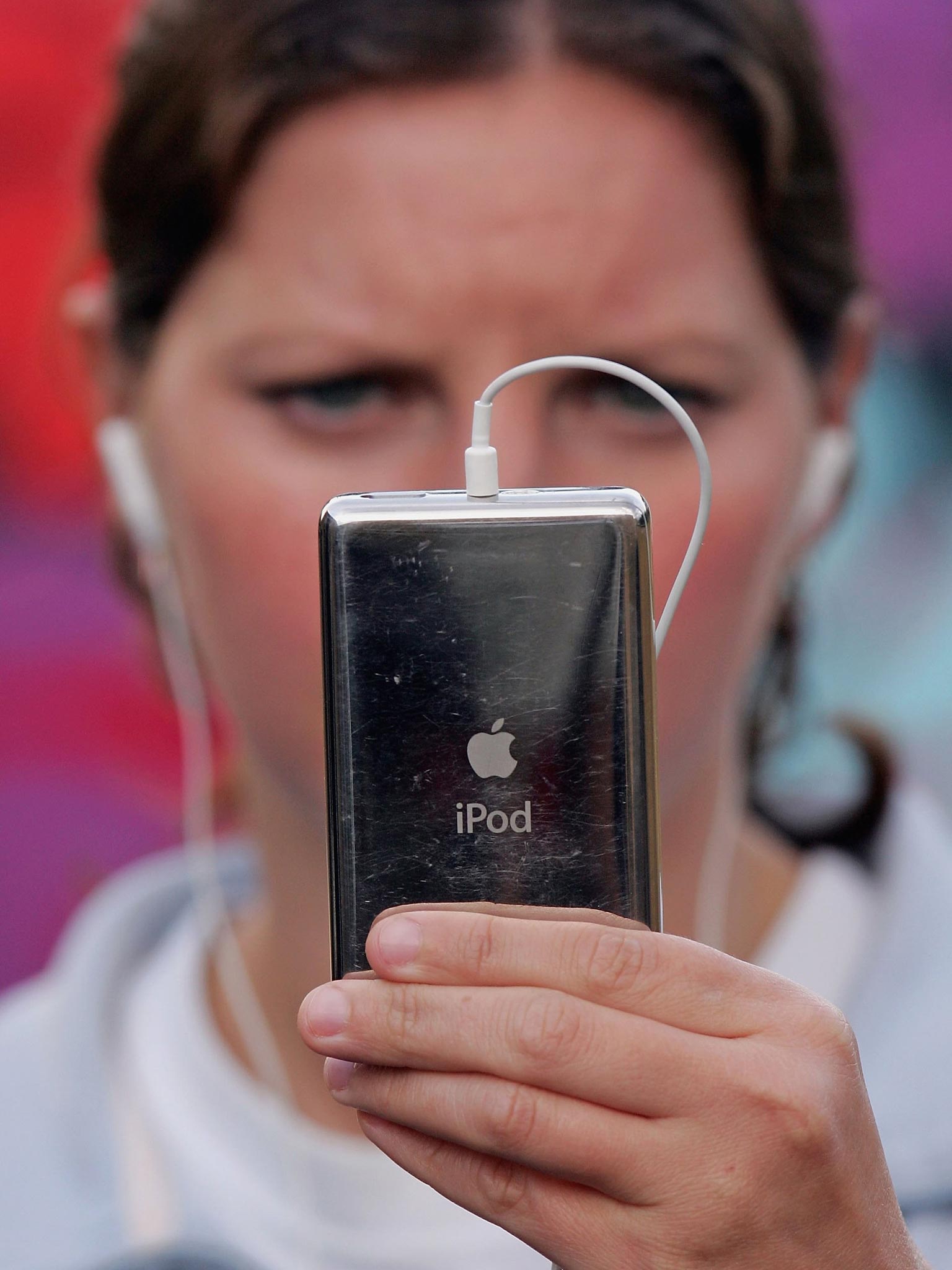Podcasts 10 years on: The often eccentric medium has attracted devoted listeners - and created media stars
A raft of stars, including Hollywood's Alec Baldwin and Joan Rivers, have adopted the medium, as well as universities, police and museum tours

Your support helps us to tell the story
From reproductive rights to climate change to Big Tech, The Independent is on the ground when the story is developing. Whether it's investigating the financials of Elon Musk's pro-Trump PAC or producing our latest documentary, 'The A Word', which shines a light on the American women fighting for reproductive rights, we know how important it is to parse out the facts from the messaging.
At such a critical moment in US history, we need reporters on the ground. Your donation allows us to keep sending journalists to speak to both sides of the story.
The Independent is trusted by Americans across the entire political spectrum. And unlike many other quality news outlets, we choose not to lock Americans out of our reporting and analysis with paywalls. We believe quality journalism should be available to everyone, paid for by those who can afford it.
Your support makes all the difference.Four-hour histories of Alexander the Great, first-hand accounts of childbirth and pontifications on Sheffield Wednesday's leaky defence. The the world of podcasts is nothing if not diverse.
It has been 10 years since technology journalist Ben Hammersley coined the term "podcast" to describe the form of automatically downloaded audio that has since gained a cult following.
In the same year that Hammersley found his label for what many had termed "audioblogging", Steve Jobs allowed iTunes and iPods to receive podcasts, and the following year, comedian Ricky Gervais partnered Karl Pilkington and Stephen Merchant to create an episodic online sensation, The Ricky Gervais Show, that spun off into a Channel 4 cartoon.
A raft of stars, including Hollywood's Alec Baldwin and Joan Rivers, have since adopted the medium, as well as universities, police and museum tours.
It's not just the professional podcasts that have earned a devoted fanbase. As the nerdy child of cut-and-stick fanzines and pirate radio's aural assaults, podcasting is an easy way for amateurs to sidestep traditional media and find a niche audience through spoken-word shows.
There's something for everyone in the world of podcasts, from the salacious tales of an anonymous US flight attendant on Betty in the Sky With a Suitcase to pedant Grammar Girl's bite-size audio analysis of words.
Helen Zaltzman, who is one half of the Answer Me This podcast, in which she attempts to solve quirky listener questions such as "how did the jigsaw come about" and "why isn't Bonfire Night illegal?", will present the first of a two-part documentary on podcasting on BBC Radio 4 today, and says the medium attracts specialists. "A radio show goes through commissioners and there is a finite amount of space to fill," she says. "A podcast can be a lot more experimental and specific."
"Broadcasting has to be wide in its view by its very nature," says Paul Robinson, chief executive of The Radio Academy. "Podcasting enables you to narrowcast."
It's this niche that creates a loyal and responsive fan base. In the US, Marc Maron's humorous interview show, WTF, has even enticed punk godfather Iggy Pop to pull up his limo outside Maron's garage studio. Duo Keith and the Girl's podcast has survived the couple's on-pod break-up to remain vital for their audience, including 130 listeners who have their logo as tattoos.
On a personal note, I began a copyright- baiting podcast, Desert Isolation Discs, last year and have used the canny format – in which guests choose eight songs to survive to in a desert – to interview musicians, podcasters and even my own mother.
But it's the established media outlets such as The Guardian and BBC that take the lion's share of proceedings in the UK. There were 48.2 million downloads of BBC podcasts in January, far outstripping the popularity of its own iPlayer radio.
Luke Moore, whose podcast The Football Ramble boasts fans so ardent its latest live outing sold out in minutes, says a position outside the mainstream attracts listeners. "The media needs access to football clubs and players and competitions to sustain themselves," he says. "Likewise, football needs the media to market its product. We're happy to sit outside that and look in."
The pre-recorded format also encourages intimacy. Stephen Fry, himself an early podcaster, chose comedian Richard Herring's podcast, recorded in front of an audience in London last year, to bare his soul after attempting to take his own life, which subsequently made the front page of The Sun.
But the podcast format's future remains in doubt. The transition from the majority downloading podcasts to desktop computers to smartphones is clogging devices' limited storage space, and Apple's decision to hive off podcasts from iTunes to a separate app has discouraged serendipitous discovery. "I do wish people would hurry up and develop a Netflix-style recommendation site for podcasts," says Zaltzman. "It's too reliant on word of mouth."
There are also few advertisers, with podcast funding largely reliant on donations and merchandising purchases from grateful fans. "Advertisers are always a few years behind the media, it will catch on," says Robinson. "The challenge is measuring how many people actually consume podcasts."
At the same time, audio competition has intensified. Streaming sites such as Mixcloud – largely targeted at DJs – have given amateur radio a social media-style feel, as users can favourite, comment and share content. Also upping the ante are systems such as Sonos, that allow you to control music throughout your house via your smartphone.
In the future, the play button may be replaced by voice recognition and the smartphone by smart-glasses, but as long as listeners get their weekly fix of aural oddities, the spirit of podcasting will live on.
Join our commenting forum
Join thought-provoking conversations, follow other Independent readers and see their replies
Comments